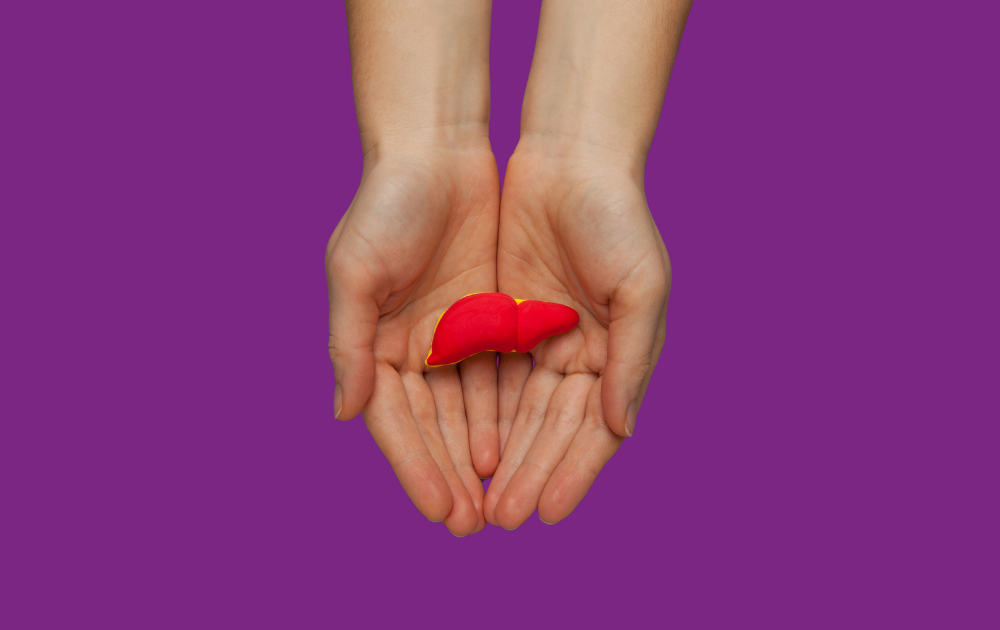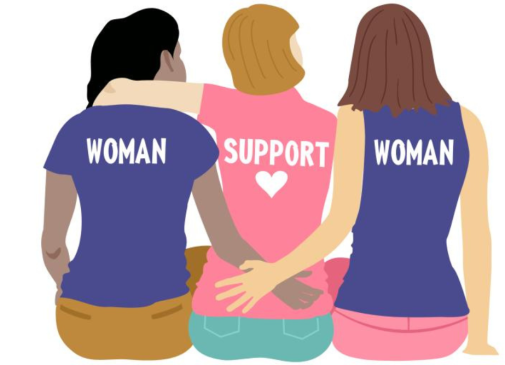
When you think of liver disease, you probably think of jaundice, the yellowing of the skin or eyes, as a major symptom. While this may be true, period changes such as missed periods and heavy periods can also be common signs of liver disease.
Liver disease and period changes are common especially for post-menopausal women. If you’ve been experiencing abnormal periods, it’s important to consider the underlying factors that could be causing these shifts.
What Is Liver Disease?
Your liver is vital for digesting food, removing poisons, regulating hormones, and storing energy. In the news and media, we often hear about alcohol consumption leading to liver failure and cirrhosis (scarring within the liver). However, liver disease is actually a general term that can encompasses a few different liver issues such as:
- Hepatitis A, hepatitis B, and hepatitis C.
- Primary or secondary liver cancer.
- Intaking certain drugs, poisons, or alcohol.
- Excess fat cells within the liver.
- Hemochromatosis and Wilson’s disease.
It’s important to note that cirrhosis and many types of liver disease are typically easily treated if caught at an early stage. All liver conditions are considered progressive; therefore, it’s important to catch it early on before it turns into liver failure.
While the side effects and symptoms of liver disease depend on which condition you have, there are some overlap such as:
- Fever or chills
- Tiredness and fatigue
- Muscle weakness
- Confusion
- Dark or brown urine
- Pale stool
- Yellow skin or eyes
- Nausea and vomiting
- Pain felt under the ribs on the right side of the body
- Abdominal swelling
- Edema, swelling in the legs or feet
- Menstrual changes such as irregular/missed periods or heavy bleeding
Abdominal swelling and pain can be significant, especially if your liver disease has progressed to a more serious level. Liver disease and period issues should never be taken lightly. Menstrual changes such as irregular or missed periods can negatively impact fertility; therefore, it’s important to consult a physician as soon as you notice significant shifts in your cycle.
Causes of Liver Disease
Due to the fact there are multiple types of liver disease, there are a few risk factors to be aware of, such as:
- Excessive alcohol consumption, which can lead to cirrhosis and alcoholic fatty liver disease (AFLD)
- Obesity.
- High cholesterol.
- Unmanaged type 2 diabetes.
- Family or personal history of liver disease or cancer.
- Personal medical history of hepatitis B or C.
- Some medications or drugs.
- Exposure to certain household cleaning products, pesticides, fertilizers.
There are many different types of liver disease; therefore, you should consult with your doctor regularly about potential risk factors.
Thankfully, most types of liver disease including fatty liver disease and cirrhosis (liver scarring) can be reversible. Preventative measures such as avoiding alcohol, losing weight, managing cholesterol/diabetes, and understanding your medical history can help lower your risk of permanent liver failure.
Can a Fatty or Damaged Liver Cause Fibroids?
We know that having a fatty or damaged liver can often cause hormonal imbalances. Unfortunately, researchers are still unsure what directly causes fibroid growth. However, we do know that fibroids often grow or shrink during puberty, childbirth, and menopause. Therefore, fibroids are sensitive to hormone changes, especially oestrogen.
According to a recent article, poor liver function, such as a fatty or damaged organ, can play a part in hormonal imbalances. This is because the liver regulates the balance of sex hormones, thyroid hormones, cortisone and other adrenal hormones. If there is an excess of a certain hormone, the liver removes it from the body. When the liver is not functioning properly, it cannot regulate the amount of hormones at any given time. This could potentially lead to women’s health and reproductive issues like fibroids or endometriosis where an excess of hormones could influence tissue growth.
Is Having a Fatty Liver Similar to Liver Disease?
No, having a fatty liver and going through liver disease/failure are too separate conditions. Non-alcoholic fatty liver disease (NAFLD) is a common condition caused by the storage of extra fat in the liver. It can often lead to hormone imbalances, menstrual changes, abdominal pain, chronic fatigue, muscle weakness, or jaundice (yellowing of the skin and eyes).
While alcoholic fatty liver disease is caused by the consumption of alcohol, NAFLD can be caused by:
- Obesity
- Type 2 diabetes
- High cholesterol
Both AFLD and NFLD can lead to permanent liver damage, failure, and cirrhosis if not treated. However, managing your diabetes, weight, and cholesterol can help reduce symptoms as well as progression of NFLD.
Fatty Liver and Irregular Periods
As we mentioned above, a fatty liver, either caused by alcohol consumption or excess fat cells, can lead to hormone imbalances. Consequently, imbalances in estrogen and progesterone can often lead to excessive menstrual bleeding as well as missed periods. Fatty liver and irregular periods often go hand-in-hand; therefore, you should always consult your doctor if you’ve noticed any changes.
Additionally, chronic liver disease can also impair production of clotting factors that are needed to stop uterine bleeding during a regular cycle. Although fatty livers and irregular periods are often common, there are a few other reasons you may be experiencing abnormal menstrual cycles.
Other Causes of Abnormal or Heavy Periods
Liver disease is not the only condition that can cause your period to be irregular or heavy. Abnormal periods can be caused by other underlying conditions as well. Some of these may include:
- Uterine fibroids
- Adenomyosis
- Endometriosis
- Uterine or ovarian cancer
- Polycystic ovary syndrome (PCOS)
- Bleeding or clotting disorders
- Pregnancy, peri-menopause, or menopause
- Stress, mental health, or low body mass index (BMI)
- Medications or diet
Tracking your period’s regularity, volume, and color can help your doctor understand what could be impacting your period. Uterine fibroids, benign tumors that develop within the uterus, is a common condition that affects close to 70 to 80 percent of women before the age of 50. That being said, it’s important to get checked for these uterine growths, especially if you’re in your late 20s to 40s.
Alcohol Consumption, Liver Disease, and Periods
As you may already know, excessive alcohol consumption can cause fatty liver disease. In the U.S., it is considered excessive drinking if you consume more than eight drinks (12 oz of beer, 5 oz wine, etc.) per week. According to the NIH, close to 20 percent of alcoholics have AFLD. It is important to get regular blood work done to determine the health of your liver. Thankfully, it has been found that with just two weeks of avoiding alcohol altogether, excess fat cells within the liver tend to decrease.
Additionally, excessive alcohol consumption can also lead to uterine fibroid growth and infertility. This is because alcohol consumption changes the levels of various hormones, growth factors, and, cytokines (small proteins that are in charge of cell signaling) which can lead to an increased risk for fibroid tumor growth. Fibroids are also sensitive to inflammation. Alcohol tends to increase inflammation, especially for women with fibroids, leading to severe pelvic pain and bleeding.
You can learn more about the impacts of alcohol on your period and fibroid growth HERE.
Treatment for Heavy Periods Caused by Fibroids
If you’ve noticed a change in your period, such as irregularity or increase in volume, it’s important to consult a women’s health or fibroid specialist to learn more about potential causes. Uterine fibroids can often cause heavy, irregular bleeding that lasts over 10 days at a time.
According to the Illinois Department of Public Health, an estimated 77 percent of women in their 20s to early 40s could have the fibroid growths without knowing their existence. Don’t wait for your symptoms to worsen. Whether it is liver disease or uterine fibroids causing your heavy, irregular periods, it’s important to get a diagnosis and treatment before your condition progresses. Thankfully, there are non-surgical, outpatient treatment solutions like Uterine Fibroid Embolization (UFE) that can help eliminate your fibroids resulting in significant symptom relief.
At the Fibroid Fighters Foundation, we provide helpful resources for women with abnormal periods. We can direct you to a fibroid center near you that can assist with a clear diagnosis and treatment strategy that fits your individual needs.
Give us a call at 855.455.5262 or contact us conveniently online. We’re happy to help answer any questions you may have about symptoms, diagnosis, treatment options, and locations.







